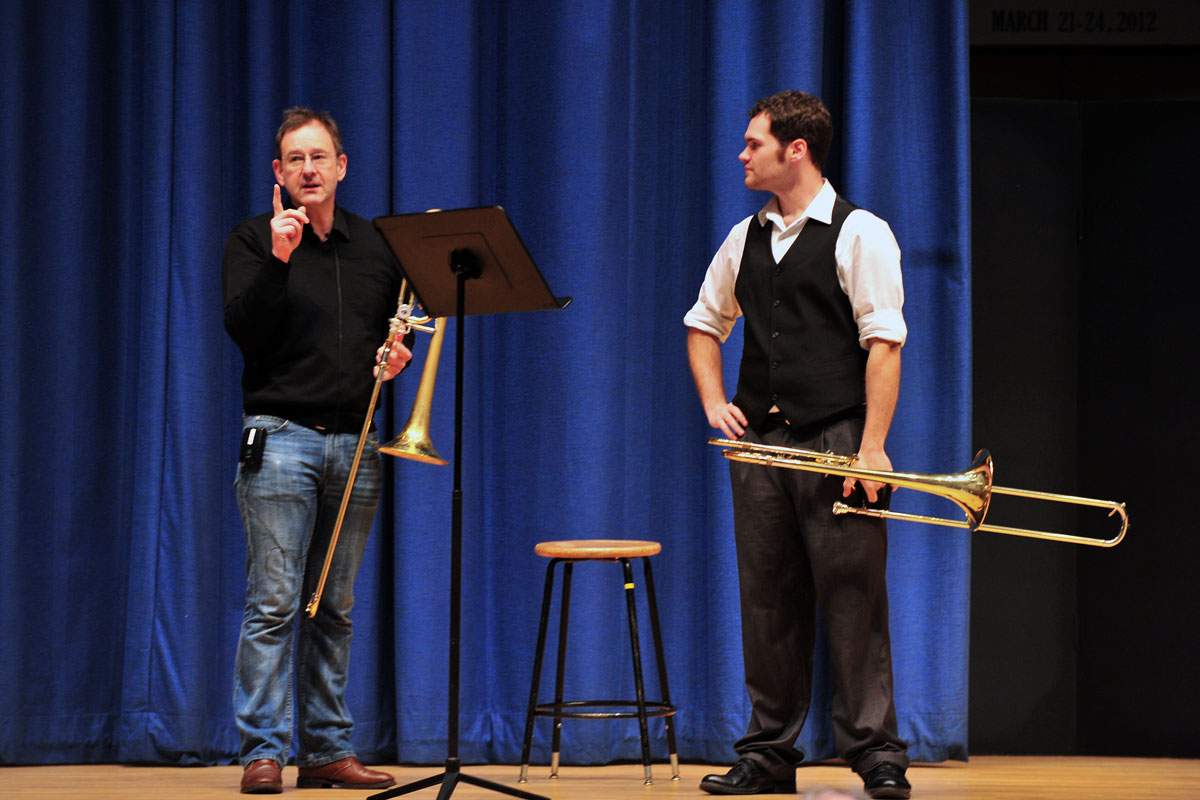
The College Experience
There's one room every music student visits at least once a week that gets his or her heart pounding the room where they take their private lessons.
"You get a sense when you walk up to this door if you're actually prepared or not," says Jacobs School of Music senior clarinetist Joe Weber.
Weber credits some of the success he's experienced during college with preparation he received in high school. He attended the College Audition Preparation Workshop (CAP), a program run by Jacobs School professors and alumni. It's a weeklong event for high schoolers meant to give them a sneak-peak at what it's like to be a college music student.
"Kids are up and 6:00am, breakfast at 7:00am. I know, take a deep breath," says Liz Pfaffle, CAP assistant director. Students take lessons and attend master classes. They also receive help writing résumés and understanding financial aid.
"They're walking between the buildings. They can go to the music library," says Pfaffle. "They can just experience what it's like to be on campus, and that's a big part of it."
I would say if you're not sure that you want to be a musician after CAP, then that's probably a good sign that you should look for something else in your life.
5 Minutes To Shine
"We're more intent on potential I think than finished product," says Dee Stewart, director of CAP and professor of trombone.
The week culminates in a mock audition that is supposed to simulate the stress, expectations and brevity of a college audition. Stewart explains that on a typical audition day for the Jacobs School, he hears 25 trombonists a new hopeful every ten minutes.
"So by the time a person walks in and introduces himself and we do some paperwork and so forth, they might play for 5 minutes, and that's really a pivotal point in their life," he says.
Crash Course
17-year-old singer Joseph Keppeler of Bethesda, Maryland is one of the 46 Cappers to attend this year's workshop. 2013 is only the third year of the vocal program 13th year for CAP as a whole but now over half of CAP's attendees are singers.
One of the many things Keppeler is taking away from CAP is his ability to absorb so much knowledge in so little time.
"I've learned to be confident, to really express what's in the music, to tell a story, as I've heard so many times this week. Tell a story with the music," he says.
Embrace The Challenge
Not all Cappers leave the program wanting to make a life in music, and organizers stress that that's okay.
But for Joe Weber, CAP was like jumping in the deep end it was scary but he wanted the challenge.
I would say if you're not sure that you want to be a musician after CAP, then that's probably a good sign that you should look for something else in your life, because if you're not excited to go through those struggles then it's just not worth it. There are so many other things you could do with your life. But to me, it was completely worth it because I just knew that it was something I was supposed to do with my life.






